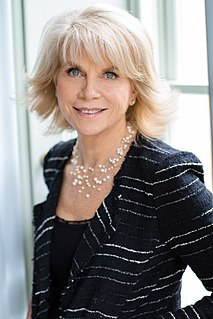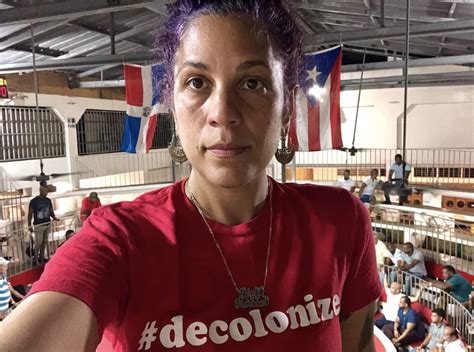A Quote by Princess Margaret
It was while Princess Margaret was attending a high-society party in New York that the hostess asked her politely how the Queen was keeping. "Which one?" she is reported to have replied with her typically razor-sharp wit. "My sister, my mother or my husband?
Related Quotes
I knew she was a party girl. The book I liked most on her was called [princess] Margaret: A Life of Contrasts and getting to know her, it was how conflicted her position and her internal life - or self - was. She is so fiercely royal and so fiercely "sister of the queen" or "daughter of the king" because that is her identity and it's all she's ever known. And at the same time she is struggling to push the boundaries and to break away from it, to be different or to modernize the monarchy, to turn it on its head.
I talked to my mother about it a lot. I asked her what it was like to grow up in New York and Harlem in the 1920s and 1930s, and I asked her about a woman leaving her husband. I asked her about how she would feel about that woman, and my mother grew up in the Church Of God In Christ, and she told me that the woman might be isolated because the other women thought she might go and come after their husbands. That's how they thought then.
Although still viewed as lovely and alluring by many, Winston Churchill's mother shocked society when at 46 she married a man 20 years her junior. Most malicious of the many jibes launched at her was that of one lady who went about peering into perambulators. When asked her reason, she replied, "I am searching for my future husband."
She remembered that once, when she was a little girl, she had seen a pretty young woman with golden hair down to her knees in a long flowered dress, and had said to her, without thinking, "Are you a princess?" The girl had laughed very kindly at her and asked her what her name was. Blanche remembered going away from her, led by her mother's hand, thinking to herself that the girl really was a princess, but in disguise. And she had resolved that someday, she would dress as though she were a princess in disguise.
Elizabeth’s hands flew to her mouth; tears filled her eyes with happiness as she realized he was fulfilling yet another of her and her mother’s intended activities. “Why are you fulfilling all of my mother’s dreams?” she asked, studying his face and searching for answers. “So you don’t run away like she did in search of them,” he replied, taking her hand. “Come on, join in!” he said, leaping around.
The Winter Woman is as wild as a blizzard, as fresh as new snow. While some see her as cold, she has a fiery heart under that ice-queen exterior. She likes the stark simplicity of Japanese art and the daring complexity of Russian literature. She prefers sharp to flowing lines, brooding to pouting, and rock and roll to country and western. Her drink is vodka, her car is German, her analgesic is Advil. The Winter Woman likes her men weak and her coffee strong. She is prone to anemia, hysteria, and suicide.
One thing I did have under my belt was, my mother lost her mother when she was 11. She mourned her mother her whole life and made my grandmother seem present even though I never met her. I couldn't imagine how my mom could go on but she did, she took care of us, she worked two jobs and had four children. She was such a good example of how to conduct oneself in a time of grief. When I lost my husband, I tried to model myself as much as I could on her.
I particularly recollect your saying one night, after they had been dining at Netherfield, 'SHE a beauty!--I should as soon call her mother a wit.' But afterwards she seemed to improve on you, and I believe you thought her rather pretty at one time." "Yes," replied Darcy, who could contain himself no longer, "but THAT was only when I first saw her, for it is many months since I have considered her as one of the handsomest women of my acquaintance.
The idea is that Jodie Foster is with her child and she's going back to New York from Germany with her husband's body. She loses her child on a plane, and you think, 'How can that happen?' There's no record of her having brought a child onto the plane, and the captain is left wondering about whether she's telling the truth. You never really know if she's telling the truth or not.
Sometimes we adopt certain beliefs when we're children and use them automatically when we become adults, without ever checking them out against reality. This brings to mind the story of the woman who always cut off the end of the turkey when she put it in the oven. Her daughter asked her why, and her mother responded, "I don't know. My mother always did it." Then she went and asked her mother, who said, "I don't know. My mother always did it." The she went and asked her grandmother, who said, "The oven wasn't big enough."
Princess Diana talking to Prince William about the loss of her title Her Royal Highness: She turned to William in her distress. She (Princess Diana) told me how he had sat with her one night when she was upset over the loss of HRH, put his arms around her and said: Don't worry, Mummy. I will give it back to you one day when I am king.
The idea of the book ["The Japanese Lover"] came in a conversation that I had with a friend walking in the streets of New York. We were talking about our mothers, and I was telling her how old my mother was, and she was telling me about her mother. Her mother was Jewish, and she said that she was in a retirement home and that she had had a friend for 40 years that was a Japanese gardener. This person had been very important in my friend's upbringing.
But her name was Esmé. She was a girl with long, long, red, red hair. Her mother braided it. The flower shop boy stood behind her and held it in his hand. Her mother cut it off and hung it from a chandelier. She was Queen. Mazishta. Her hair was black and her handmaidens dressed it with pearls and silver pins. Her flesh was golden like the desert. Her flesh was pale like cream. Her eyes were blue. Brown.





































